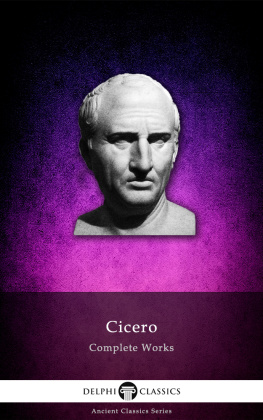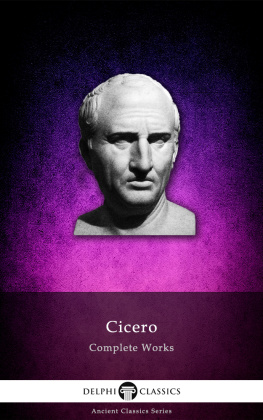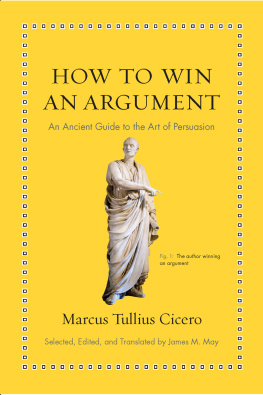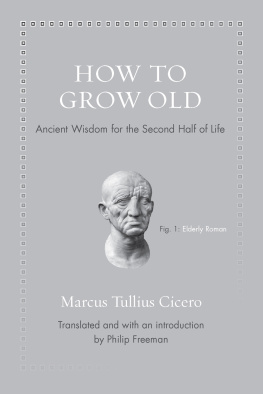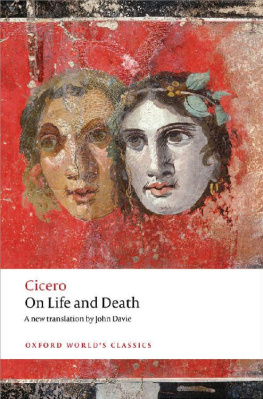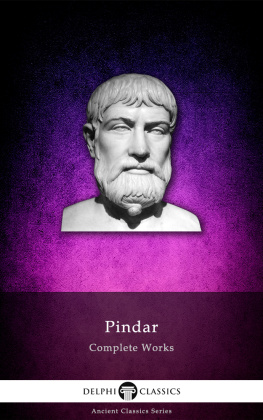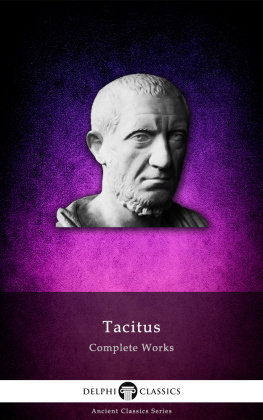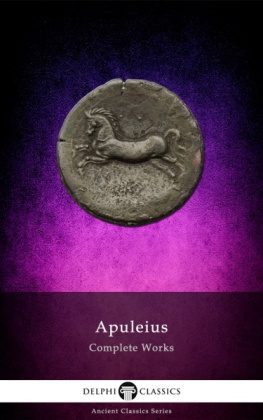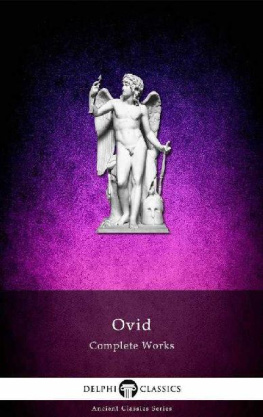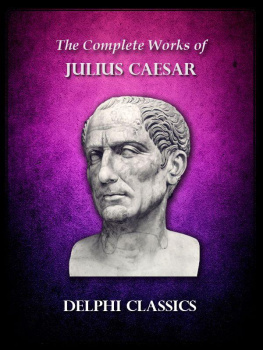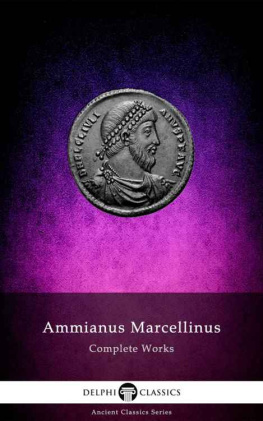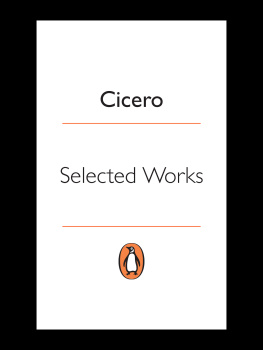Marcus Tullius Cicero - Complete Works
Here you can read online Marcus Tullius Cicero - Complete Works full text of the book (entire story) in english for free. Download pdf and epub, get meaning, cover and reviews about this ebook. year: 2014, publisher: Delphi Classics, genre: Science. Description of the work, (preface) as well as reviews are available. Best literature library LitArk.com created for fans of good reading and offers a wide selection of genres:
Romance novel
Science fiction
Adventure
Detective
Science
History
Home and family
Prose
Art
Politics
Computer
Non-fiction
Religion
Business
Children
Humor
Choose a favorite category and find really read worthwhile books. Enjoy immersion in the world of imagination, feel the emotions of the characters or learn something new for yourself, make an fascinating discovery.
- Book:Complete Works
- Author:
- Publisher:Delphi Classics
- Genre:
- Year:2014
- Rating:5 / 5
- Favourites:Add to favourites
- Your mark:
Complete Works: summary, description and annotation
We offer to read an annotation, description, summary or preface (depends on what the author of the book "Complete Works" wrote himself). If you haven't found the necessary information about the book — write in the comments, we will try to find it.
* Beautifully illustrated with images relating to Ciceros life and works
* Features the complete works of Cicero, in both English translation and the original Latin
* Concise introductions to the orations, treatises and other works
* The complete speeches, with rare fragments, arranged in precise chronological order
* Includes many translations previously appearing in Loeb Classical Library editions of Ciceros works
* Excellent formatting of the texts
* Easily locate the orations or treatises you want to read with individual contents tables
* Includes rare fragments of Ciceros epic poem, first time in digital print
* Many rare treatises appearing here for the first time in digital print
* Features four biographies immerse yourself in Ciceros ancient world!
* Scholarly ordering of texts into chronological order and literary genres
* UPDATED with corrections
Please visit www.delphiclassics.com to browse through our range of exciting titles
CONTENTS:
Orations
PRO QUINCTIO
PRO ROSCIO AMERINO
PRO Q. ROSCIO COMOEDO
PRO TULLIO
DIVINATIO IN CAECILIUM
IN VERREM
PRO FONTEIO
PRO CAECINA
PRO LEGE MANILIA
PRO CLUENTIO
IN TOGA CANDIDA
PRO RABIRIO PERDUELLIONIS REO
PRO MURENA
IN CATILINAM I-IV
DE LEGE AGRARIA CONTRA RULLUM
PRO SULLA
PRO ARCHIA POETA)
PRO FLACCO
POST REDITUM IN SENATU
POST REDITUM IN QUIRITES
DE HARUSPICUM RESPONSIS
DE DOMO SUA
PRO SESTIO
PRO CAELIO
PRO BALBO
IN VATINIUM TESTEM
DE PROVINCIIS CONSULARIBUS
IN PISONEM
PRO RABIRIO POSTUMO
PRO PLANCIO
PRO MILONE
PRO REGE DEIOTARO
PRO MARCELLO
PRO LIGARIO
PHILIPPICAE
FRAGMENTS OF SPEECHES
Rhetorical and Political Treatises
DE INVENTIONE (About the Composition of Arguments)
DE ORATORE AD QUINTUM FRATREM LIBRI TRES (On the Orator)
DE PARTITIONIBUS ORATORIAE (About the Subdivisions of Oratory)
DE OPTIMO GENERE ORATORUM (About the Best Kind of Orators)
DE RE PUBLICA (On the Republic)
BRUTUS (Short History of Orators)
ORATOR AD M. BRUTUM (About the Orator)
TOPICA (Topics of Argumentation)
DE LEGIBUS (On the Laws)
Philosophical Treatises
PARADOXA STOICORUM (Stoic Paradoxes)
ACADEMICA (The Academics)
DE FINIBUS BONORUM ET MALORUM (About the Ends of Goods and Evils)
TUSCULANAE QUAESTIONES (Tusculum Disputations)
DE NATURA DEORUM (On the Nature of the Gods)
DE DIVINATIONE (On Divination)
DE FATO (On Fate)
CATO MAIOR DE SENECTUTE (On Old Age)
LAELIUS DE AMICITIA (On Friendship)
DE OFFICIIS (On Duties)
Letters
EPISTULAE AD ATTICUM (Letters to Atticus)
EPISTULAE AD QUINTUM FRATREM (Letters to his brother Quintus)
EPISTULAE AD BRUTUM (Letters to Brutus)
EPISTULAE AD FAMILIARES (Letters to his friends)
Poetry
DE CONSULATU SUO (On Ciceros Consulship)
Spurious Works
RHETORICA AD HERENNIUM (To the Tribune Publius Sulpicius Rufus)
COMMENTARIOLUM PETITIONIS (Essay on Running for Consul)
The Latin Texts
LIST OF LATIN TEXTS
The Biographies
CICERO by Plutarch
LIFE OF CICERO by Anthony Trollope
CICERO by W. Lucas Collins
ROMAN LIFE IN THE DAYS OF CICERO by Alfred John Church
Please visit www.delphiclassics.com to browse through our range of exciting titles
Marcus Tullius Cicero: author's other books
Who wrote Complete Works? Find out the surname, the name of the author of the book and a list of all author's works by series.

